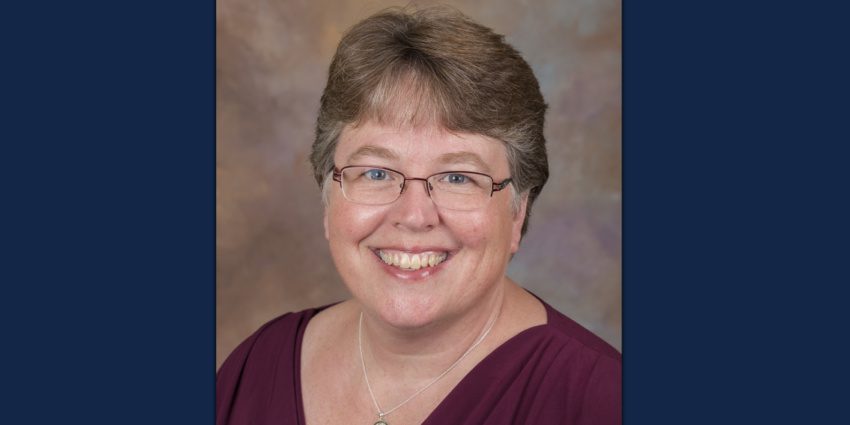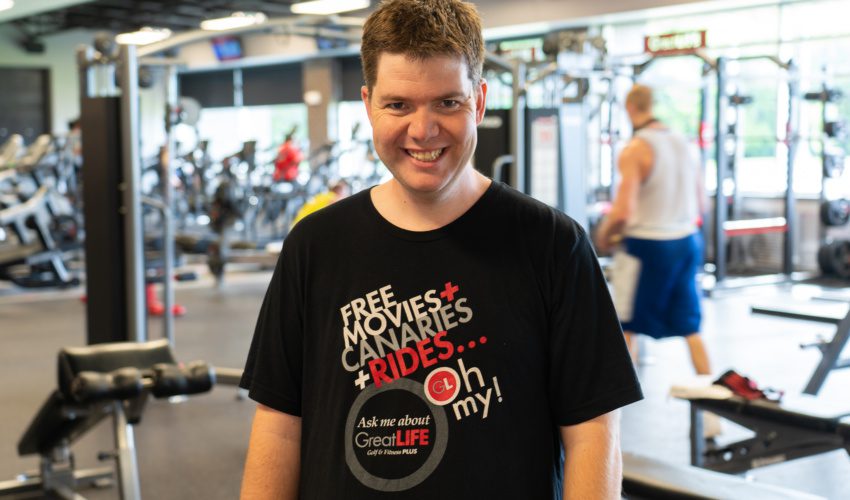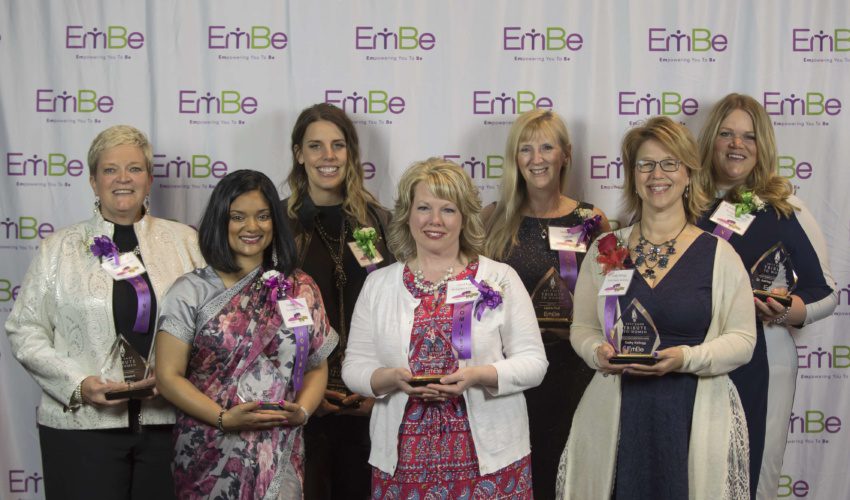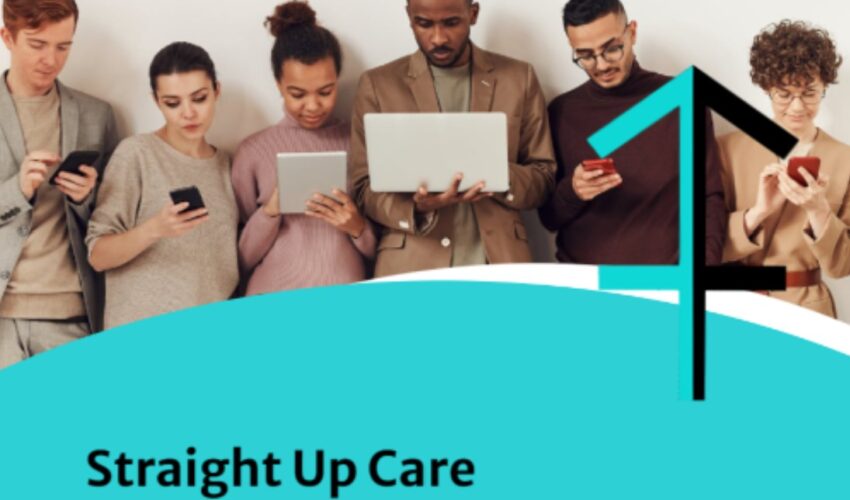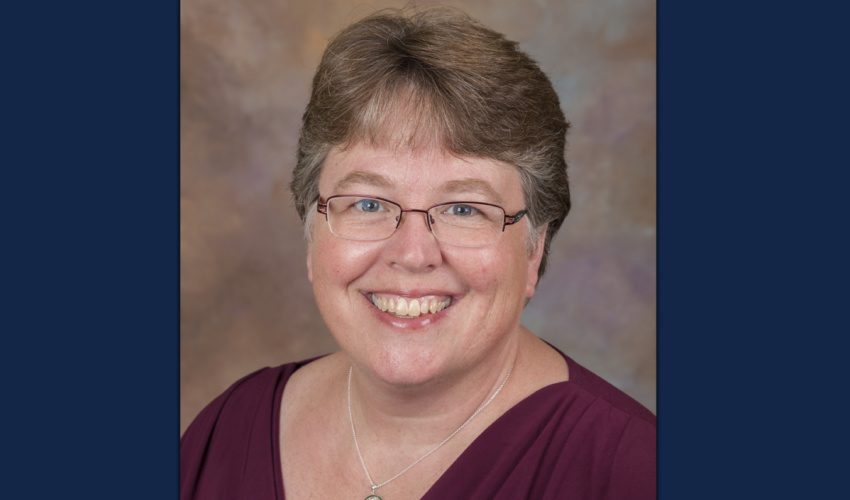Meet Augustana’s first dean of the School of Education
May 12, 2020
This paid piece is sponsored by Augustana University.
Dr. Laurie Daily is a familiar face on the Augustana University campus who is about to take on a first-of-its-kind role within the university.
As the inaugural dean of the School of Education, Daily will lead the newly formed school and help execute on a vision to make the school a regional leader in educational research and practice.
Daily joined Augustana in 2015 as chair of the education department. In addition to her position as chair, she also has served as interim associate vice president for graduate and continuing education from 2016 to 2018.
Daily received her doctoral degree in educational leadership at Argosy University and earned a master’s degree in special education at the University of North Carolina. Before coming to Augustana, she was the education chairperson at Northwestern College in Orange City, Iowa, where she was chair for seven years and also taught for 12 years. Before that, she directed a field-based special education teacher training program in New Hampshire, developed the special education program at Plymouth State College and taught children with special needs in North Carolina.
We sat down with her to learn more about her new role and how it fits into Augustana’s broader strategic plan, Viking Bold: The Journey to 2030.
Your career in education has been extremely broad. What drew you to Augustana in the first place five years ago, and what has made you want to grow with the university?
Augustana was especially attractive to me because of its mission and core values, and its long and rich history of innovative programming — particularly when it comes to serving people with disabilities. As a person with a background in special education, I found this extremely attractive and saw it as evidence of Augustana’s commitment to community and inclusivity.
My tenure paper was focused on promoting shalom, with a particular focus on belonging as a basic human need. I love Wolterstorff’s description of shalom as “human flourishing.” Augustana is a place where I have not only had the opportunity to flourish as a leader over the past five years, but have also been able to support others to do the same.
While I am relatively new to Lutheran higher education, I find the orientation to a sense of calling particularly compelling. The administrators, faculty and staff at Augustana carry out their work with such care and dedication to the mission of Augustana, and I have been honored to join them in this work. I also love the fact that Augustana is a place that embraces both tradition and innovation. I look forward to serving as the inaugural dean of the School of Education to continue to advance the mission of Augustana in creative and impactful ways.
Help us understand how a School of Education looks and works differently than the way Augustana currently structure its education programs.
In the past, the education department has been situated within the social sciences division of the college, now university. As we move forward to have a College of Arts and Sciences with divisions on the three areas mentioned, the School of Education will continue to focus on the primary importance of contributing to our students’ education in the liberal arts tradition but will elevate the work of the undergraduate and graduate programming that we offer and support in our professional programs. We have named new program directors in the areas of teacher education, sign language interpreting and communication disorders to support the undergraduate programming in these areas. The hope with the launch of the School of Education is to support innovation and expanded programming. The move to adopt a college and schools model is also aligned with our classification as a comprehensive university.
Is there anything you think people might be surprised to learn as far as what Augustana already offers those interested in the field of education?
First, let me say that the programs offered under the umbrella of the School of Education are many. Augustana has been involved in teacher education for more than a century and has also offered graduate program that also focused on teaching for more than 50 years. Our graduates are highly sought not only for their skills and abilities, but also for their orientation to service and commitment to excellence in all that they do.
We are just launching programming in education studies and special education studies that will enable students who do not necessarily want to become K-12 teachers the opportunity to complete coursework and field experiences to enable them to serve children and youth in other roles and capacities.
Our nationally accredited program in sign language interpreting is one of only a small number of programs that enjoys this status. As a result, we draw students from all over the country. The program earned the Sorenson Innovation in Interpreter Education in 2016.
We also have an outstanding undergraduate program in communication disorders. Our faculty and students provide speech and language support to more than 100 students in a handful of local private schools.
In addition, we offer two online graduate programs and a plethora of online continuing education courses for people already in the field of education.
What are some of your key initial goals in your new role?
My initial goals are very much tied to working with faculty, strategic partners and stakeholders to develop a plan to help the School of Education become even more of a leader in the region in terms of research and practice. We have such a solid foundation on which to build, and this will be exciting work in which we can engage as part of Viking Bold.
How do you see the School of Education fitting into Augustana’s broader new structure for the university? How can and will it work with other majors and programs?
Augustana operates with a shared governance model, which means that faculty and the administration work together to oversee all aspects of the delivery of curriculum and instruction, as well as co-curricular offerings. We will be undertaking the work of mapping out specifics related to the new structure and how it will apply in the coming months as we launch both the School of Education and the School of Music.
Our faculty teach courses that are part of our general education core, SOPHIA, as well as courses for majors that are tied to other departments. We have excellent programming in music education, as well as in many other areas in which students can be certified at the secondary or EK-12 levels. In addition, our elementary education majors take a variety of co-requisite courses from departments all around campus –e.g., biology, chemistry or physics, literature, American history, American government, art, music, physical education, etc. This kind of collaboration with other departments will continue. While the education programs are viewed as pre-professional programs, we wholeheartedly embrace the value of learning in the liberal arts tradition. As we continue to expand program offerings, this will continue to be an important focus for the work of the faculty.
Augustana has a rich history of innovation in its education programming. What are some recent examples, and where do you see that going?
Yes, Augustana does enjoy a long and rich history in innovation. The Augie Access program is a shining and recent example. Augie Access is a Post-Secondary Comprehensive Transition Program that enables young adults with intellectual or developmental disabilities to attend college. This program supports the students’ development academically, socially and in the area of employment.
We also developed an online graduate program in special education with different areas of emphasis – K-12 and early childhood – and hope to launch an option for autism specialist and/or BCBA programming in the near future.
This summer, we are implementing a “learner designed” area of concentration in the M.Ed program. This will allow a creative and flexible option for teachers as they seek to bundle continuing education courses that they have completed for graduate credit within the past seven years or to complete approved coursework in an area of interest.
The most recent proposal is to create an option for undergraduate students to earn up to nine graduate credits as they complete a major in special education. These credits could then be applied towards one of our graduate programs in education. We are really excited to be able to get this approved with the hope that we can offer this option to students beginning in spring 2021.
We are always seeking new and creative ways to offer learning opportunities for pre-service teachers, for students who are future sign language interpreters or future speech and language pathologists or audiologists. In addition, we seek ways to offer rigorous and relevant continuing education opportunities. We enjoy partnerships with a variety of entities to offer these opportunities to meet local, state, regional and national needs in ways that are accessible and offer the Augustana focus on excellence and community as we consider how that programming is offered to prospective students of all ages.
It’s graduation season, so let’s talk about the track record Augustana has with placing its graduates. Are they finding jobs, even this year? And how do you see the newly formed School of Education continuing to work with industry in the Sioux Falls community?
Augustana has an excellent track record with regard to placing its graduates in work related to their majors, as well as supporting students as they move on to graduate schools. Students are finding jobs, even in the midst of the pandemic. Our students who were student teaching or completing clinical experiences and internships this spring made us proud as they showed their ability to be flexible, adaptable and creative as they continued the work in any ways that were available to them.
My hope is that we can continue to enhance the strong partnerships that we have enjoyed for decades with local school districts, private schools, agencies and businesses as we offer a variety of undergraduate and graduate programs. We have many representatives from the community on our advisory boards for teacher education, sign language interpreting and Augie Access. Our external partners have a significant voice and role in our program improvement efforts, and we are grateful. As we imagine new opportunities ahead, my hope is that we can expand strategic partnerships that will offer mutual benefit and meet community and regional needs.

